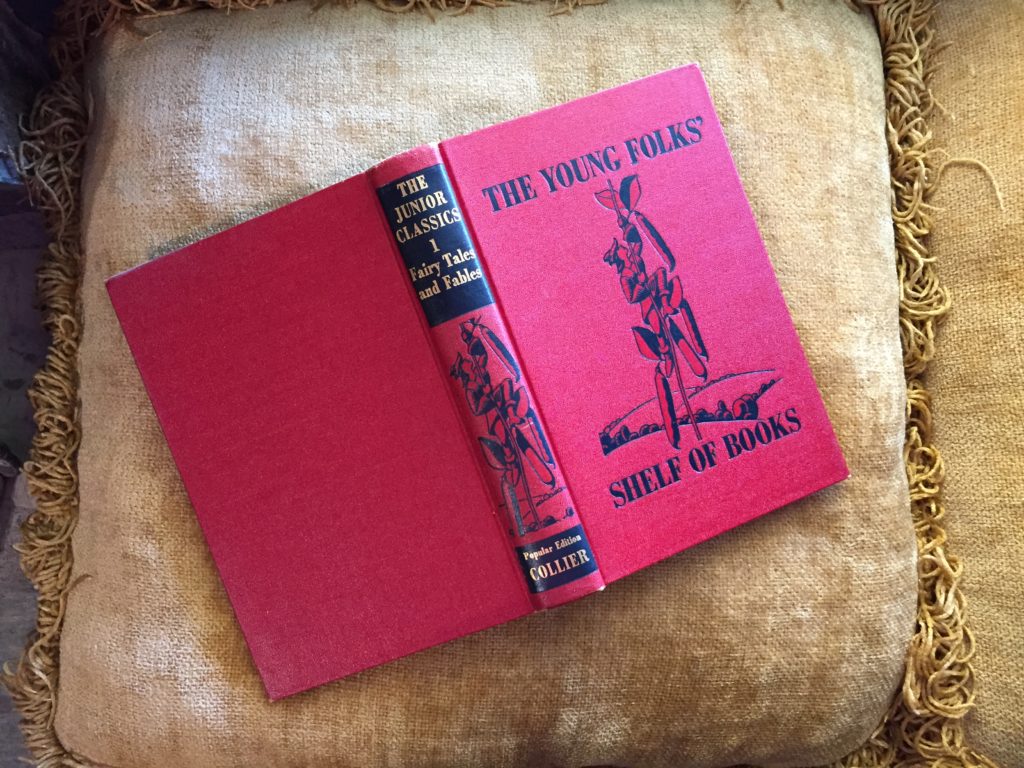FOR THE LAST SEVERAL MONTHS we’ve searched, dug, uncovered, remembered and relived, all for the sake of grieving well and achieving what we call grieving completion. But does discovery mean we’ve successfully arrived at completion?
No. Awareness and discovery are not grief completion. We still have some work to do.
Why discovery doesn’t equal grief completion?
Let’s imagine the following scenario: If you learned that you had hurt a friend’s feelings, would just knowing you hurt them rectify the problem? Surely not. You would, hopefully, want to go to that friend and apologize to them, to have the relationship restored, if possible.
If you didn’t apologize, both you—and your friend—would remain incomplete, with that offense likely hanging over both of your heads and hearts for years.
Your realization of your offense does not naturally complete what was left emotionally unfinished.
You need to take action.

Keep sounding (and feeling) like a broken record, or enjoy freedom—
Maybe you know someone who keeps repeating the same story over and over and over again. Or maybe you know you’re guilty of doing that. You know they—or you—sound stuck in the past, and you don’t know how to get them, or you, unstuck.
When you carry the repetitive accounts around inside your heart and head, never able to let them go or bring a satisfactory end to them, you’re actually limiting and restricting your life from possibilities, freedom, peace and joy. And each time the story is repeated the resentments—or regrets—pile up.
You don’t need to relive the pain, frustration or anger the rest of your life; you can put a period on those emotions. You can apologize. You can forgive. You can state what you always wanted to say or what you know you should have said out loud and free your heart and mind from the burdens they’ve been carrying around for far too long.

What about exaggerated memories and embellished stories?
When a person is grieving, they often embellish their stories or create fairytale characters out of their deceased loved ones—both good and evil characters.
Unfortunately, doing this can put a serious barrier on the road to grief completion. The goodness of the deceased person is embellished; the person’s sins get expanded like hot air balloons. We can deify people just as easily as we can demonize them.
Be careful to not create or write a story that’s more untruthful than realistic. Believe it or not, these extremes can be covers for unfinished relationships, words and actions.
Tell the important positive things. Divulge the uglier, more hurtful events. Tell of wonderful promises kept and promises broken. In the end, your story and its ending will be realistic, and it can be a powerful witness to forgiveness, transformation and peace to someone aching to find those things.
For both positive and negative events, the freedom you gain from going through this sometimes difficult relationship review and grief completion allows you to acknowledge and let go of unrealized hopes, dreams and expectations about what transpired in the past and what could or should have occurred in the future. Or what you hoped would have occurred.
What we’re aiming for is freedom.
And exactly what does that mean for the grieving person? This statement from the Grief Recovery Institute drives the point home:
“Freedom does not mean the end of sadness, but it can mean the end of pain. Freedom allows fond memories to stay fond and not turn painful. Freedom allows [you] to remember loved ones the way [you] knew them in life rather than to be fixated on the images of the loved one in death.”
You can also be freed from haunting memories of a not-so-loved one. Terrible things that happened will take up less mental and heart real estate. The pain and hurt of broken promises will fade away and consume you less.

Next step: Completion—
Let’s return to the sample question list I introduced last week. How did you answer those?
Were you able to uncover times where apologies were warranted? Forgiveness needed to be given?
Did you remember significant events, both good and bad? Did you note what you wished could have been better, different, or you would have had more of?
Were you able to uncover events in the four critical areas that help you communicate those undelivered emotional thoughts and feelings?
- Apologies
- Forgiveness
- Significant emotional statements that aren’t apologies or forgiveness. You know, really important stuff.
- Fond memories—things you want to thank the person for, things you appreciated about them.
If you really dug deeply and answered them forthrightly, you’re ready to compile the necessary statements into a form where you are delivering, completing and saying goodbye.
Let’s see what that looks like.

Delivering your relationship review statements, completing grief, and saying goodbye—
So what, exactly, does a relationship review letter look like? How long is it? With whom do you share it?
The letter looks like any other letter you might write to someone, about the significant parts of your shared relationship, your joys, your hurts, your apologies, your forgiveness. The length will usually depend upon the relationship and the depth of it, how much life passed between you and the other person.
While you don’t have to include everything you noted on the emotional energy checklist, you’ll want to make sure you include the significant emotional comments.
The important things to remember about this letter are what it’s not, and what it is.
First, it’s not a journal or diary entry, and it’s not really a full story.
It’s a story that communicates the apologies, forgiveness, significant emotions and fond memories contained in a special or significant relationship. It’s a way to un-trap those bottled up emotions and release the energy surrounding a death or loss.
It also gives you a conduit to say a formal goodbye to the physical relationship that no longer exists. The letter makes it possible to say goodbye to the emotional aspects of the relationship when the physical relationship is over.
Let’s take the example of a young man (say, in his early twenties) whose father suffered from mental illness and committed suicide.
The young man might start his letter with stating just how difficult life has been since his father’s death. The pain, the shock, the way his dad was found. How he still feels numb. How much he hurts over what happened.
Then he might talk about all the wonderful things he remembered about his dad when he was younger, and talk about significant trips or events they shared. Say how much he enjoyed those. And he can talk about the significant disappointments.
Then he might move into talking about his dad’s mental illness and how it affected him and how he saw it affecting his dad. How it damaged their relationship. And then make a forgiving statement to his father about how he knows it wasn’t his dad’s fault that he suffered from something he had no control over.
And the young man might feel it was necessary to apologize for his behavior toward his father at certain times, when the mental illness came between them or had a negative effect on their relationship or the family. How he was impatient and treated his father in an unloving or even mean way because of it.
He might talk about how he blamed his mom for the problems, because she was the most available and easiest person to blame.
Toward the end of the letter, the young man might say how upset he was at his dad’s selfishness, for the time and events his dad had and his actions had robbed them of—like college graduation, birthdays, marriage and grandchildren. Maybe the young man is sorry that he’s feeling so angry with his father and needs to make a forgiveness statement about that and the future.
Finally, he could tell his dad just how much he misses him, loves him, and forgives him and is glad he is no longer suffering. How grateful he is for the time they did have together. But how he still doesn’t understand why his father would do something so extreme and unloving as to take himself away from all of them. Maybe he might ask his father in the letter if he didn’t feel loved enough. Maybe he feels as though his dad didn’t fight hard enough to get well, or stay alive for his family.
But at the end of the letter, he can tell him again how much he loves and misses him, and say “goodbye.”
It’s always important to say goodbye.
Then he can read this letter, which is likely to be lengthy, to a friend, a grief group member, or a trust family member. Someone who will just listen to his heart being poured out.
For this kind of tragic event, it’s not unusual for the surviving children (or spouse) to feel deep anger, deep regret, and deep guilt over what they think they could have done or should have done or wished they’d done differently. Or maybe what the doctors could have or should have done. These things need to be expressed.
Let’s look at another letter that might be written by a ten-year child at the events surrounding the death of her father to a terminal illness. Yes, even children should go through this relationship review exercise.
“Dear Dad,
Why did you have to die? The last time I saw you you promised you would see me soon, but you broke your promise. I know you love me and wanted to see me, and you didn’t die on purpose, so I forgive you. But I miss you so much, and I didn’t like it when Aunt Amy came to school to get me instead of Mom. But I forgive Mom, too, because she was with you.
I miss skipping to school with you, and visiting you in the hospital, even though you looked strange. I’m sorry I was rude to you that day when I told you I was fed up with you feeling so poorly and that it wasn’t fair I didn’t get to visit my cousins. I’m sorry you were sick so much. I was sad a lot because you were so sick. And I was worried.
I wish I could have been allowed to visit you that last week in the hospital. And I felt so confused when Aunt Mary came to pick me up at school.
I miss you, Dad. I don’t understand why you had to die. I’m still angry. I wish you were still here to look after me and Jack, and make my meals, and take me to school and pick me up. I just wanted you to know that.
I love you, Dad.
Goodbye,
Ann
This letter is very short, probably because of the writer’s age. But don’t put a specified length on your letter. Just make sure you say what you need to say, and then say goodbye.
Always say goodbye.
And when you’re satisfied that you’re finished, you must read your relationship review letter to someone.
As the experts at the Grief Recovery Institute note:
“The key to completion is that the thoughts, feelings, and ideas must be verbalized and be heard by another living human being to be a ‘completed’ communication.”
Undelivered communications of an emotional nature must always be verbalized.
And if you’re listening to someone deliver this kind of letter, think of yourself as a heart with ears.
So always, always, always listen with your heart!
What about other significant losses?
There are other significant losses besides death.
There is moving and leaving cherished friends, maybe nearby family, a job you enjoy.
There’s divorce.
There’s physical and emotional or psychological trauma.
There are a number of ugly and shocking things that can happen and that may deeply affect you in life.
These tools we’ve covered the last several months can be used for all of them. Hopefully, you’ll be able to put them to good use for yourself and perhaps others.
They’re game and life-changers.

Invitation—
- This is your opportunity to put your hard work together. Take the time you need to compose a letter you’re satisfied with and then find a heart with ears to listen to your heart.
NEXT WEEK we’ll do a grief recovery wrap-up by talking a little bit about drugs used in battling grief and telling the truth when you’re grieving.
Until then,
Find a heart with ears, or be one.
Blessings,
Andrea
“Beloved, I pray that you prosper in all things and be in health, just as your soul prospers” (3 John).
Andrea Arthur Owan, M.S., A.T., R., is a fitness pro, speaker, award-winning inspirational writer, memoirist, and senior-ordained chaplain (IFOC). She helps people thrive physically, emotionally, and spiritually, and recover from grief, loss and trauma.
